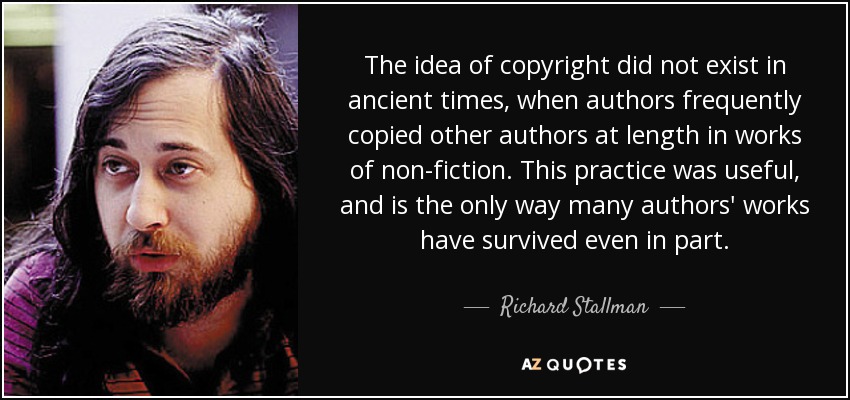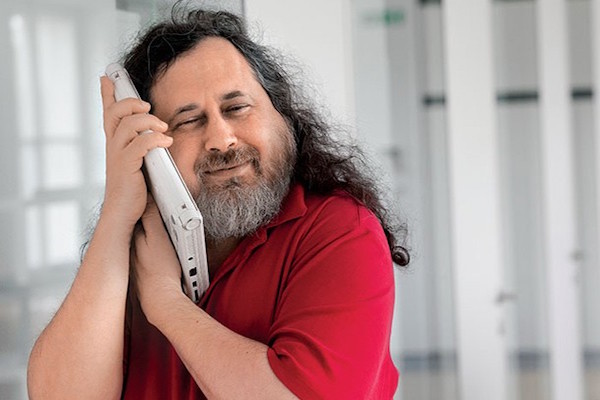Richard Matthew Stallman, known affectionately as “RMS,” is a name synonymous with the free software movement. His contributions to the world of software have not only redefined how we interact with technology but have also set a precedent for user freedom and rights in the digital age. This article delves into the life, achievements, and legacy of this living legend, who has dedicated his life to the cause of free software.
Early Life and Passion for Computers
Born on March 16, 1953, in New York City, Richard Stallman exhibited a keen interest in computers from a young age. His journey into the world of computing began in earnest when he was hired to solve numerical problems using Fortran at the IBM New York Scientific Center. This early exposure ignited a passion that would shape his career and the future of software development.
Stallman’s academic pursuits led him to Harvard University, where he continued to nurture his love for programming. During his time at Harvard, he also volunteered as a laboratory assistant in the biology department, showcasing his diverse interests and intellectual curiosity. However, it was at the Massachusetts Institute of Technology (MIT) where Stallman truly found his calling. He worked as a programmer at the MIT Artificial Intelligence Laboratory, immersing himself in the burgeoning field of computer science.
The Genesis of the Free Software Movement
Stallman’s vision for free software crystallized in the early 1980s. Frustrated by the increasing restrictions imposed by proprietary software, he sought to create a world where software was free to use, modify, and distribute. This vision led to the creation of the GNU Project in 1983. GNU, which stands for “GNU’s Not Unix,” aimed to develop a free Unix-like operating system.
The launch of the GNU Project marked a significant milestone in Stallman’s career. His goal was to make the software compatible with Linux, ensuring reliability and portability. This initiative laid the groundwork for what would become a cornerstone of the free software movement. In 1985, Stallman founded the Free Software Foundation (FSF), a non-profit organization dedicated to promoting computer user freedom and defending the rights of all software users. 
Contributions and Achievements
Stallman’s contributions to the field of computing are immense and varied. He developed several essential tools and software that have become integral to programming and software development. Among his notable creations are the text editor EMacs, the GNU Debugger (GDB), and the GNU Compiler Collection (GCC). These tools not only facilitated the development of free software but also empowered programmers to create high-quality, open-source applications.
Stallman’s unwavering stance against software patents, digital rights management (DRM), and other practices that he viewed as detrimental to user freedom has been a defining aspect of his career. He has tirelessly advocated for user rights, emphasizing the importance of software licenses that respect user freedoms, such as the GNU General Public License (GPL).

Recognition and Honors
Stallman’s relentless dedication to the free software movement has earned him numerous accolades and honors. In 1986, he received the honorary lifetime membership award from Chalmers University. Four years later, he was honored with the Exceptional Merit Award from the MacArthur Fellowship. His contributions were further recognized in 1996 when he received an honorary doctorate from Sweden’s Royal Institute of Technology.
The list of honors continued to grow, with Stallman receiving the Electronic Frontier Foundation’s Pioneer Award in 1998 and the Yuri Rubinsky Memorial Award in 1999. His remarkable achievements have been acknowledged by many prestigious institutions worldwide. Notably, he received honorary doctorates from the University of Glasgow in 2001, Vrije Universiteit Brussel in 2002, Universidad Nacional de Salta in 2004, and the University of Pavia in 2007. In 2012, he was honored by the National University of Córdoba, among others.
Legacy and Impact
Richard Stallman’s legacy extends far beyond his technical contributions. His advocacy for free software has fundamentally altered the landscape of software development and distribution. By championing the idea that software should be free to use, study, modify, and share, Stallman has empowered countless individuals and communities to take control of their digital lives.
The principles that Stallman has tirelessly promoted have paved the way for the open-source movement, which has gained significant momentum over the years. Today, many of the world’s most widely used software, from operating systems like Linux to applications like the Apache web server, owe their existence to the foundations laid by Stallman and the GNU Project.
Continuing the Mission
Even today, Stallman remains an active and influential figure in the free software community. He continues to serve as the non-salaried president of the Free Software Foundation, advocating for the rights of users and developers alike. His speeches, writings, and public appearances inspire new generations of programmers and activists to carry forward the mission of software freedom.
Conclusion
Richard Stallman’s unwavering commitment to the principles of free software has left an indelible mark on the world of technology. His visionary work has not only advanced the field of computing but also championed the cause of user freedom and rights. As we navigate the complexities of the digital age, Stallman’s legacy serves as a reminder of the power of principled advocacy and the enduring importance of freedom in the realm of software.


Comments are closed.